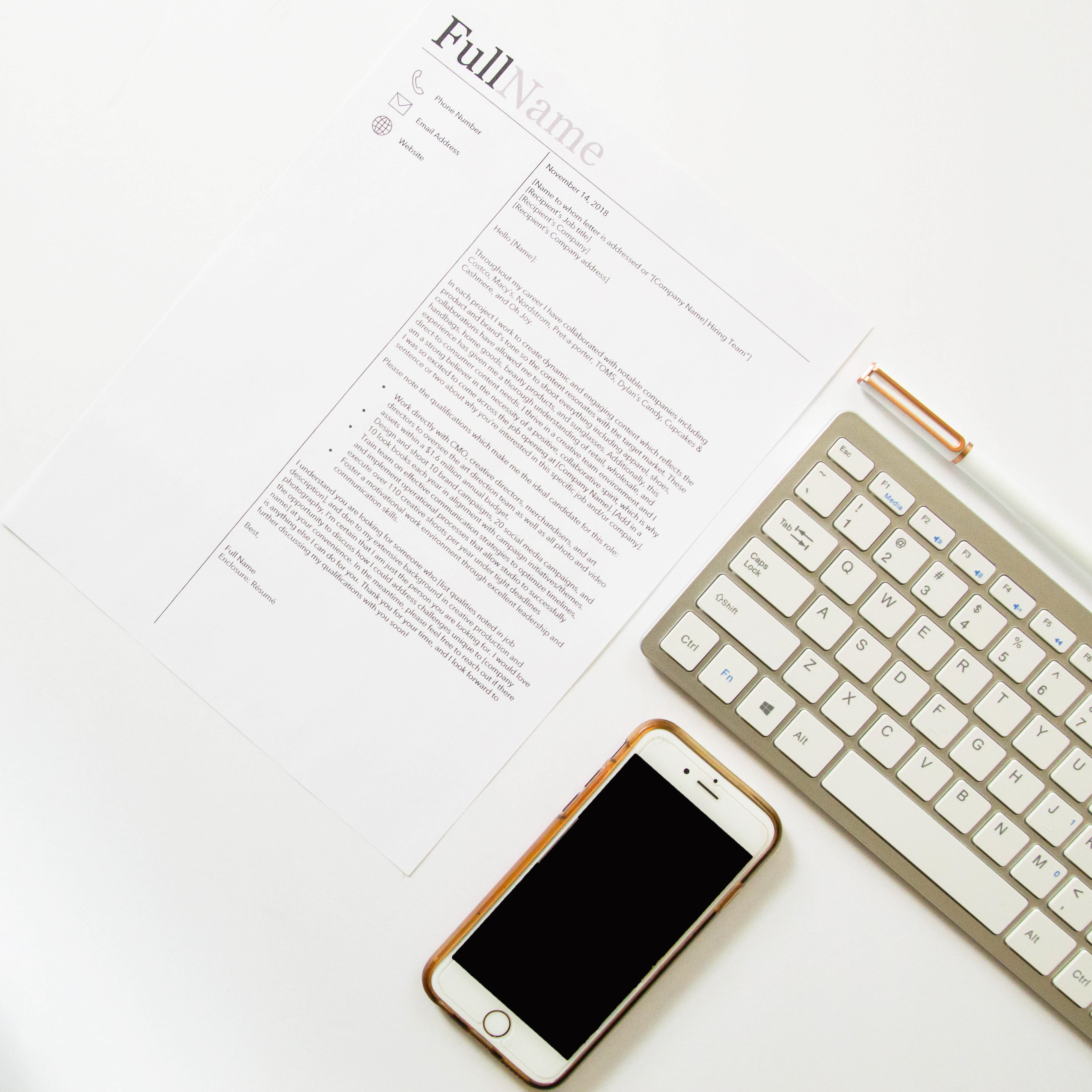
One of the most common questions that clients ask me is if cover letters matter anymore. Do people actually read them? Are they still relevant? Are they even important? The answer to all of these questions is yes. Cover letters are a key factor in landing the job of your dreams, but there are a few things you should know when hunkering down to write one. Here are four things you should know about cover letters.
- They’re extremely important
Catering your resume to the jobs you’re applying to is a crucial step of the job application process, however you can only customize a resume so much. Your cover letter is your opportunity to tell the reader exactly why you want this specific job, why you’d be great at it, and why it would benefit them to hire you.
Anyone can write a general letter of introduction, but writing a cover letter that will make an impact means truly showing your passion, why you would do well at that specific job, and why you want to work for that specific company. This information is what will make you stand out and shine. Employers want to reduce employee turnover and hire someone who will succeed and be beneficial to the company. If you can show them how you will be the solution to their problem(s), you’re on the right track to writing the perfect cover letter!
- Format can make or break you
Think about having to look over hundreds of job applications. No one wants to read something that is dense and boring. A long page of text is intimidating, so make sure your cover letter is reader friendly. Create a cover letter with a good mix of text and white space so that it is aesthetically pleasing and easy to read.
A good rule of thumb is to use this format:
- Introductory paragraph about why you want the job and how you would succeed at it.
- Bullet points highlighting your qualifications/achievements.
- Finish up with a concluding paragraph.
This format works extremely well because the bullet points break up the document, make it more reader friendly, and draw the eye to your achievements. If the reader looks at nothing else, they will read those bullet points.
- Cover letters should include specific examples of your success
Make sure that you cover the following topics:
- Why you want this specific job
- What you can bring to this role/company or how you could be a solution to a problem that they are facing
- Why you want to work for this company
If you want to write a great cover letter, you have to show hiring managers and recruiters that you really want this specific job and that you’ve done your research about it. The key here is customizing it for each job. If your letter seems like a general template that you’re sending everywhere, it can suggest that you don’t care enough about this specific job, which greatly diminish your chance of getting a call back.
- You need to research the company to write a great cover letter
Do some research on the company to see if there are any known problems/issues they are having, or see if there’s something you think you could improve upon. For example, you could say something like this:
“I noticed that while you have a strong website, you social media platforms could use some improvement. I increased the social media presence in my last company by x%, therefore I’m confident that I could boost your engagement through market research, SEO, and stronger visual content.”
This statement shows that you’ve done research, can help improve upon their current standing, and it also gives the reader a concrete example of how you succeeded in a prior role.
Similarly, if you’ve recently read an article about the company’s plan to expand or merge, explain how you could be beneficial to them during this time of transition. You want to show that you’re aware of what you’re potentially getting into, and that you want to help smooth over any bumps they may face.
________________________
If you want to write a great cover letter, follow these simple steps:
- Make sure it’s reader friendly
- Customize it for each job
- Illustrate why you want this specific job/why you like the company
- Show your potential employer how you will help them succeed
- Give concrete examples of your achievements and qualifications

Thank you, Michelle, for this great article. Do you have any examples of what a modern cover letter looks like? I am seeing these very flashy and colorful templates and wondering if employers really take these seriously.
Hi Valerie,
Your cover letter should match your resume, so just use the same header that you use for your resume, then format it as described in the article: Intro, bullet points, then closing paragraph. The goal is to have two documents (resume and cover letter) that match and go together to create a cohesive application packet.
Hope this helps!